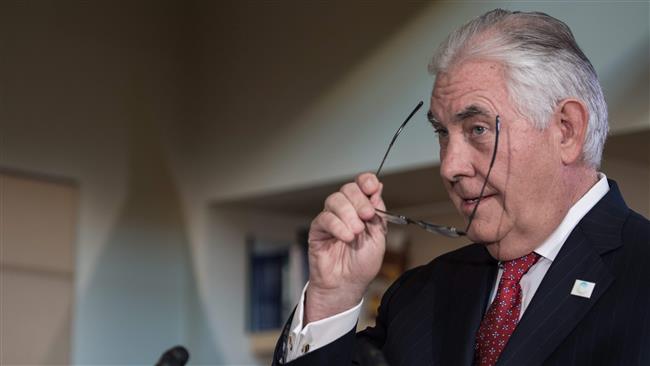
RNA - Trump will visit Riyadh on his first foreign trip next week before visiting Tel Aviv and Vatican.
“I think there is broad view and broad consensus among all in the region, among all Arab nations, among Israel and among others of Iran’s destabilizing activities in the region,” Tillerson claimed in an interview with NBC News on Sunday.
“This has to do with standing up in unity against Iran as opposed to any particular religious overtone,” he said of Trump's trip to the region.
Trump has threatened Iran with new sanctions and possible military action on several occasions.
Tillerson said Trump had chosen the three destinations because they represent Islam, Judaism and Christianity respectively.
“I think the important aspect of this visit that the president is making is to bring a message of unity” among the followers of these religions in the face of the threats posed by Daesh (ISIL) and al-Qaeda, he argued.
“This is not about any particular religion,” he said when asked if Trump was going to touch on sectarian conflicts in the region. “However, there is a strong element of the role that the nation of Iran plays in support of terrorism.”
Trump has drawn fire from Islamic nations around the world for adopting a harsh rhetoric that indiscriminately links Muslims to terror groups like Daesh.
He has proposed ill-fated entry bans against citizens of several Muslim countries, including Iran, to the US.
Ties with Russia at ‘all-time low’
Elsewhere in his remarks, Tillerson said that his country’s ties with Russia have hit an “all-time low point” since the end of Cold War.
He said this was a view that he shared with Trump, who is willing to warm things up.
“The president, I think, has made it clear that he feels it's important that we reengage with Russia,” Tillerson said.
“The relationship with Russia, as he has described, and I have described as well, is, I think, at an all-time low point since the end of the Cold War, with a very low level of trust,” he added.
The top US diplomat said expanding ties with Russia was both in the interest of the American people and the world.
847/940